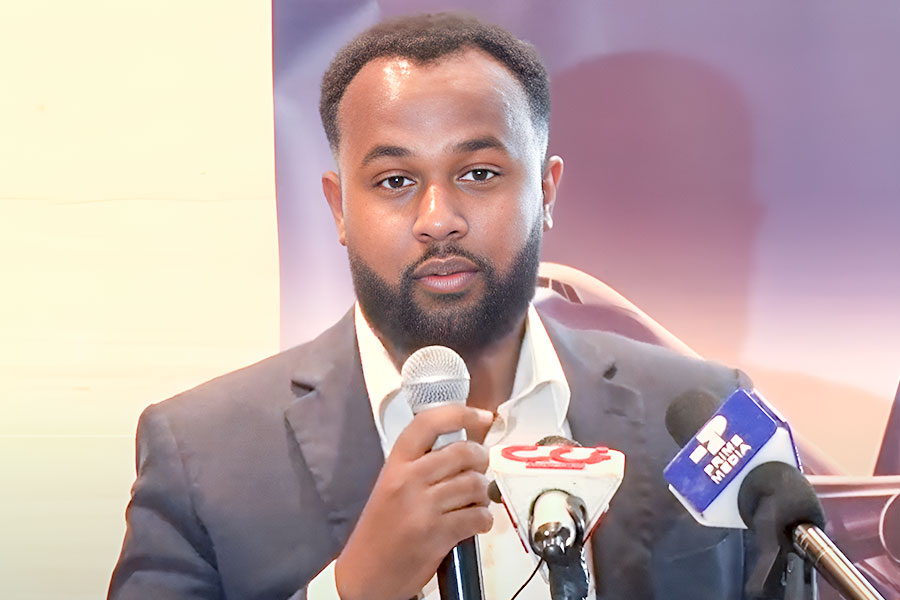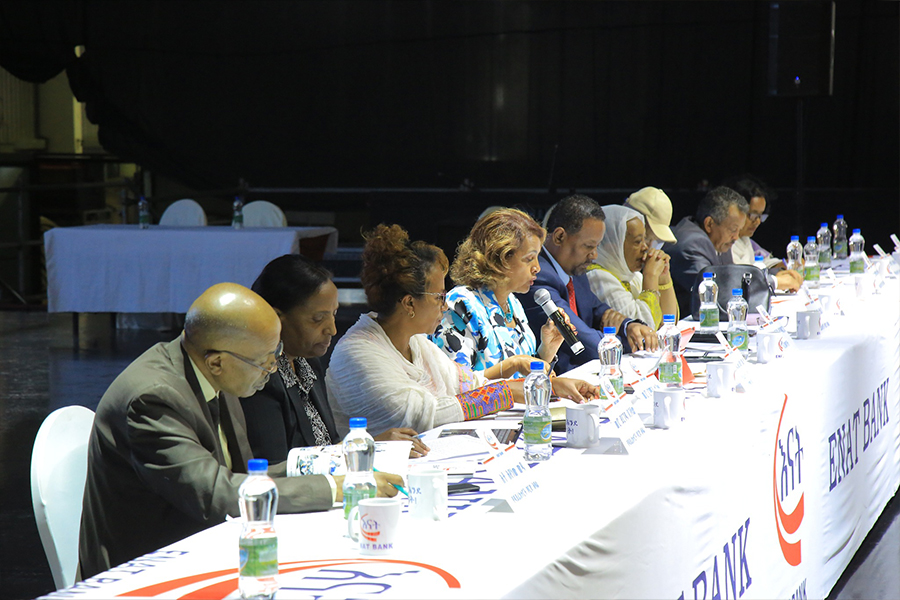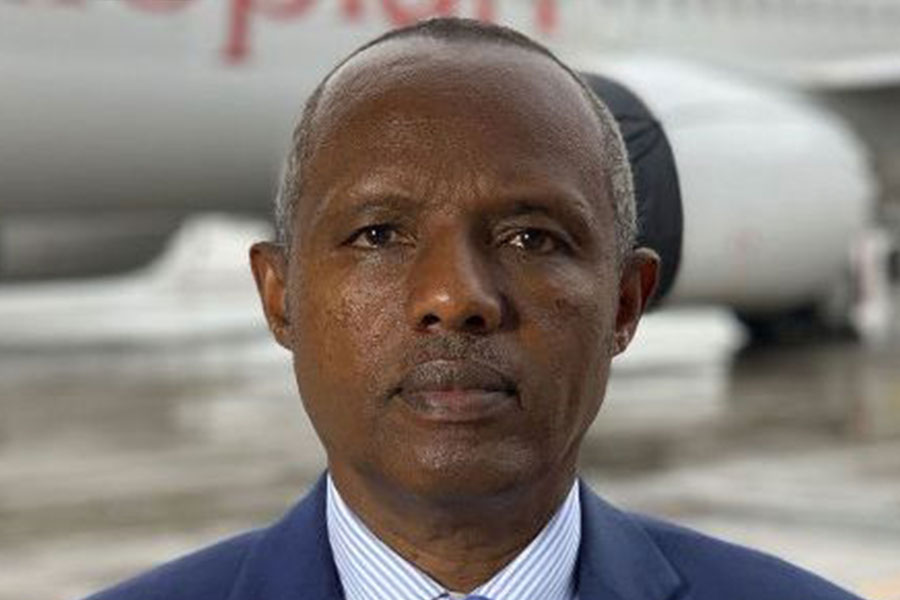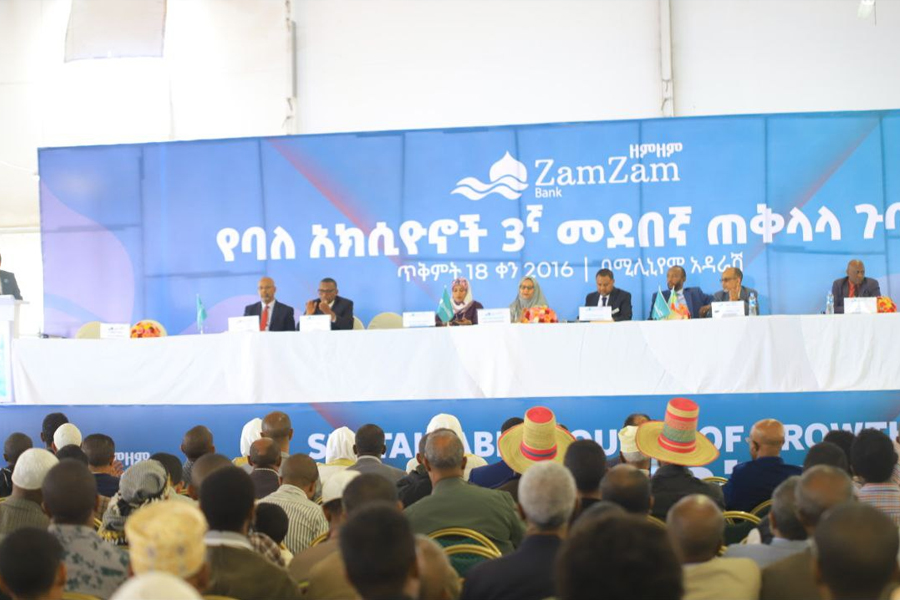
May 25 , 2024
By Hintsa Andebrhan
U.S. Ambassador Ervin Jose Massinga has become a familiar name, akin to the prominence once held by Mike Hammer, Washington's Special Envoy for the Horn of Africa. The Ambassador earned this reputation after his speech two weeks ago, which focused on human rights and conveyed his government’s views on Ethiopia's ongoing political turmoil. His remarks, while diplomatically polished, were perceived by many Ethiopians as an overreach, encroaching on the country's sovereignty.
The backlash against Massinga's speech has been apparent, with many feeling their country's honour was undermined. However, an even more profound disappointment was directed at the Ethiopian government's response, which was tepid and lacked the assertiveness expected in such a situation. The government’s filing of a complaint against the U.S. Ambassador was a lacklustre gesture rather than a robust defence of national dignity.
The Ministry of Foreign Affairs, under Taye Atske-Selassie, issued a statement in response to Massinga’s speech, describing it as containing “accusations” and “unsolicited advice.” While this reaction acknowledged the contentious nature of the speech, it stopped short of the strong diplomatic measures many expected. There was no summoning of the Ambassador for a formal explanation, a move that would have signalled a firmer posturing.
Diplomats, including American ambassadors, operate under the Vienna Convention, discharging their diplomatic duties. It allows them to pursue their home country’s political and economic interests. However, this same convention also prescribes non-interference in the host country's internal affairs. Ambassador Massinga’s recent public pronouncement should have raised questions about fidelity to this principle. It is reasonable if he is perceived as crossing a red line.
Insights into the U.S. views towards Ethiopia can be gleaned from a February 2024 online briefing by the U.S. State Department, featuring Molly Phee, assistant secretary of State for African Affairs, and the Special Envoy for the Horn of Africa. It was evident that senior Ethiopian officials, including Prime Minister Abiy Ahmed, had been discussing with these high-ranking U.S. diplomats, indicating that Massinga's statements were not spontaneous. They could be part of a broader, premeditated policy direction from Washington.
Given this backdrop, the Foreign Ministry's restrained response is unsurprising. It seems that its statement, stating the historic and friendly relations between Ethiopia and the United States, was crafted to maintain diplomatic decorum rather than escalate tensions. However, it has not gone down well with the public, who feel that the country’s sovereignty was compromised without an adequate defence.
Ethiopian-U.S. relations span over a century and have historically been lopsided, often favouring American interests. The imbalance has fueled scepticism among Ethiopians about the nature of their diplomatic ties with Washington. The recent events have only amplified these sentiments, with many viewing the Ambassador’s authoritative tone as indicative of a lack of respect for Ethiopia's sovereignty. The perceived diplomatic misstep by Ambassador Massinga is further compounded by the government's perceived weaknesses in foreign policy.
Prime Minister Abiy’s administration has been criticised for its diplomatic handling - rather mishandling - which compromises the country's sovereignty. The expectation was for a more assertive and strategic foreign policy position, which is currently lacking.
It is wise to remember that the rising influence of China and Russia is also shaping Ethiopia’s geopolitical realities. These countries are increasingly seen as viable alternatives to Western powers, offering policies more aligned with the region's interests. The shifting alliances reflect a broader trend towards a multipolar world, where countries like Ethiopia seek to diversify their international partnerships.
The geopolitical shift should also remind the United States of the importance of reassessing its policies towards the Horn of Africa. The current approach, marked by perceived interference and a lack of mutual respect, risks alienating a region with over 270 million people. Restoring the trust of these countries is crucial for maintaining influence and promoting stable relations.
The diplomatic episode Ambassador Massinga created poignantly reminds us of the intricacies of international relations.
For Ethiopia, it should serve as a timely call to strengthen its foreign policy, ensuring its sovereignty and national interests are robustly upheld. The current administration's legacy will be judged by its ability to uphold national dignity in the international arena. The lessons from this episode are unambiguous. Diplomacy, assertiveness, and strategic engagement are essential for safeguarding a country's honour and security.
For the United States, it presents an opportunity to recalibrate its diplomatic strategies, recognising that respect for sovereignty and mutual interest are vital to sustaining long-term partnerships.
PUBLISHED ON
May 25,2024 [ VOL
25 , NO
1256]


Fortune News | Aug 18,2024

Radar | Jan 19,2024

Fortune News | Sep 03,2022

Radar | Nov 03,2024

View From Arada | Mar 27,2021

News Analysis | Mar 02,2024

News Analysis | Mar 09,2024

Editorial | Nov 02,2024

Radar | Aug 27,2022

News Analysis | Nov 11,2023

My Opinion | 131656 Views | Aug 14,2021

My Opinion | 128020 Views | Aug 21,2021

My Opinion | 125983 Views | Sep 10,2021

My Opinion | 123607 Views | Aug 07,2021

Dec 22 , 2024 . By TIZITA SHEWAFERAW
Charged with transforming colossal state-owned enterprises into modern and competitiv...

Aug 18 , 2024 . By AKSAH ITALO
Although predictable Yonas Zerihun's job in the ride-hailing service is not immune to...

Jul 28 , 2024 . By TIZITA SHEWAFERAW
Unhabitual, perhaps too many, Samuel Gebreyohannes, 38, used to occasionally enjoy a couple of beers at breakfast. However, he recently swit...

Jul 13 , 2024 . By AKSAH ITALO
Investors who rely on tractors, trucks, and field vehicles for commuting, transporting commodities, and f...

Jun 28 , 2025
Meseret Damtie, the assertive auditor general, has never been shy about naming names...

Jun 21 , 2025
A well-worn adage says, “Budget is not destiny, but it is direction.” Examining t...

Jun 14 , 2025
Yet again, the Horn of Africa is bracing for trouble. A region already frayed by wars...

Jun 7 , 2025
Few promises shine brighter in Addis Abeba than the pledge of a roof for every family...

Jun 29 , 2025
Addis Abeba's first rains have coincided with a sweeping rise in private school tuition, prompting the city's education...

Jun 29 , 2025 . By BEZAWIT HULUAGER
Central Bank Governor Mamo Mihretu claimed a bold reconfiguration of monetary policy...

Jun 29 , 2025 . By BEZAWIT HULUAGER
The federal government is betting on a sweeping overhaul of the driver licensing regi...

Jun 29 , 2025 . By NAHOM AYELE
Gadaa Bank has listed 1.2 million shares on the Ethiopian Securities Exchange (ESX),...